Searching for a substitute for couscous? Don’t worry, you are not alone.
With so many different options to choose from, it can be difficult trying to find one that meets your dietary requirements while still being appetizing and nutritious.
Fortunately, there is an abundance of delicious and healthy alternatives available in grocery stores or even right out of your very own kitchen! From quinoa grain bowls to millet and more.
In this blog post, we will explore some different substitutes for couscous that you’ll want to add to your meal rotation immediately.
What Is Couscous?
Couscous is a traditional North African dish made from semolina, the coarsely ground endosperm of durum wheat.
It has a light, airy texture and can be made with different seasonings or herbs for flavor.
Couscous is usually served as an accompaniment to meat or vegetable dishes and can also be used in salads and soups.
It is very versatile and quick to prepare, making it a popular choice at mealtime.
Additionally, couscous is high in carbohydrates, which makes it a great source of energy.
The nutritional value of couscous makes it an ideal addition to any balanced diet.
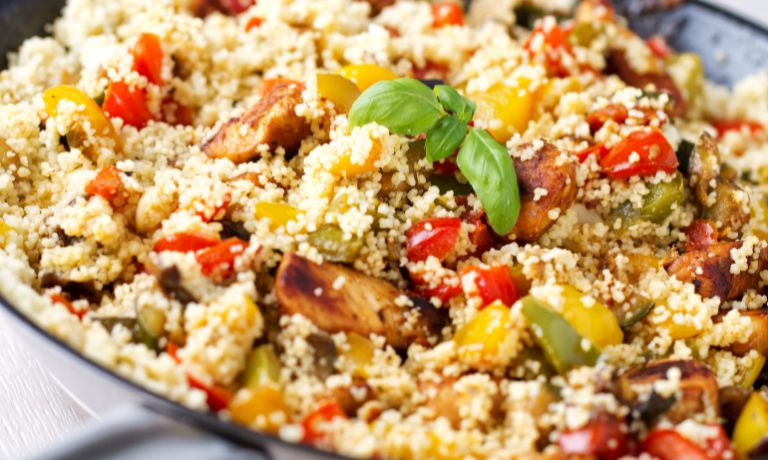
Substitutes For Couscous
If you are looking for an alternative to couscous, there are plenty of other grains and cereals that can be used as a substitute.
Here are some of them: quinoa, sorghum, short-grain rice, riced cauliflower, and millet…
Quinoa
Out of all the grains and cereals that can be substituted for couscous, quinoa is perhaps the healthiest choice.
Quinoa is a gluten-free grain that is high in protein, fiber, vitamins, and minerals.
It has a nutty flavor and can be used in many dishes instead of couscous such as salads, stir-fries, and even desserts.
Quinoa also cooks much faster than other grains which makes it very convenient to use when meal prepping or cooking on busy weeknights.
Additionally, quinoa contains more nutrients than couscous which make it an ideal substitute if you are looking for a nutritious alternative to traditional couscous dishes.
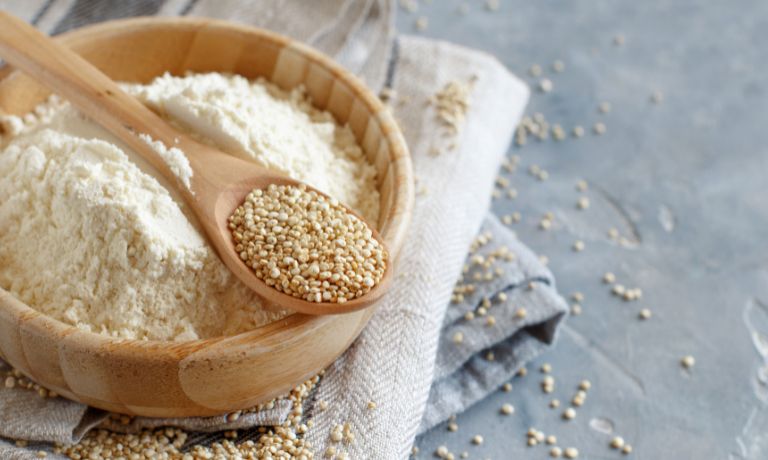
Sorghum
Sorghum is another great option for those looking for a couscous substitute.
Sorghum is a grain that comes from the grass family and has a sweet, nutty flavor that pairs well with many dishes.
It is exceptionally high in dietary fiber which makes it great for healthy digestion and weight management.
Additionally, sorghum is low on the glycemic index, making it suitable for diabetics who need to watch their blood sugar levels.
When cooked properly, sorghum has a soft texture that resembles couscous but with an added depth of flavor.
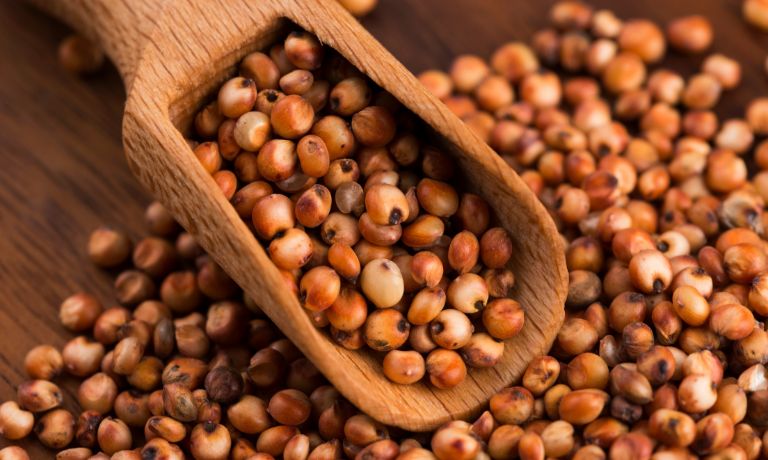
Short-Grain Rice
Short-grain rice can also be used as a substitute for couscous.
Its flavor is more subtle than other grains, but its texture is both chewy and tender which makes it an ideal accompaniment to many dishes.
Short-grain rice is also easy to digest which makes it a great choice for those with digestive issues.
Additionally, short-grain rice provides essential vitamins and minerals such as vitamin B6, magnesium, niacin, phosphorus, and zinc.
The unique texture of short-grain rice makes it an interesting alternative to traditional couscous.
It is quick and easy to prepare too – all you need to do is cook the grains in boiling water until they are tender.
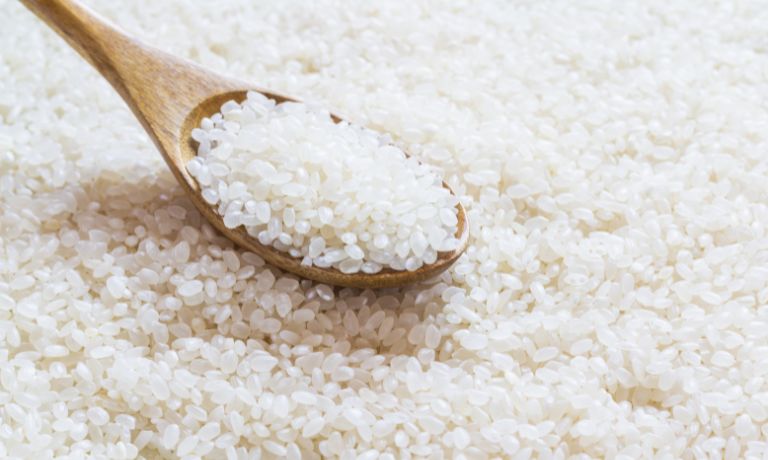
Riced Cauliflower
Riced cauliflower is made from cauliflower that has been cut into very small pieces, similar to grains of couscous, and can be used in many of the same ways as couscous.
It’s much lower in carbs and calories, making it a popular choice for those on low-carb diets or looking to lose weight.
It’s also gluten-free, so it’s ideal for those with celiac disease or who need to avoid gluten in their diet.
Finally, riced cauliflower is a great source of vitamins and minerals like vitamin C and potassium while still providing essential dietary fiber.
In terms of taste, riced cauliflower has a mild flavor that lets it easily absorb the flavors of other ingredients.
It also has a light and fluffy texture that makes it similar to couscous, making it an easy substitute in recipes.
Its health benefits and mild flavor make it a great choice for those looking to reduce their carb intake or improve their overall nutrition while still enjoying flavorful meals.
Plus, its similarity in texture to couscous means you won’t miss out on your favorite dishes!
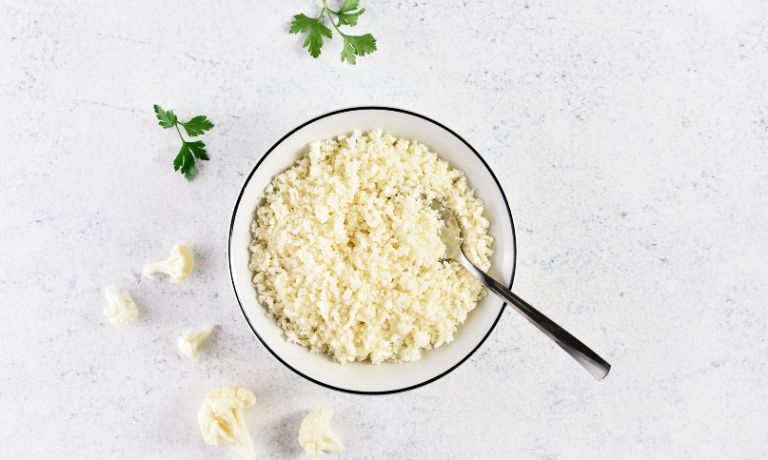
Millet
Millet is a very small grain that has been eaten for centuries all over the world.
It contains essential nutrients like protein, fiber, and antioxidants which make it extremely nutritious.
Additionally, millet is a good source of B vitamins and magnesium as well as other minerals like iron, zinc, and potassium.
Compared to couscous, millet has a much milder flavor with nutty undertones.
When cooked properly, the grains become soft and fluffy – similar to couscous – making them easy to incorporate into recipes without sacrificing texture or flavor.
Millet also has a high nutrient content and low glycemic index which makes it an excellent choice for those watching their weight or looking to regulate their blood sugar levels.
Millet is a great substitute for couscous due to its unique taste and health benefits.
It’s quick and easy to prepare too – all you need to do is cook the grains in boiling water until they are tender.
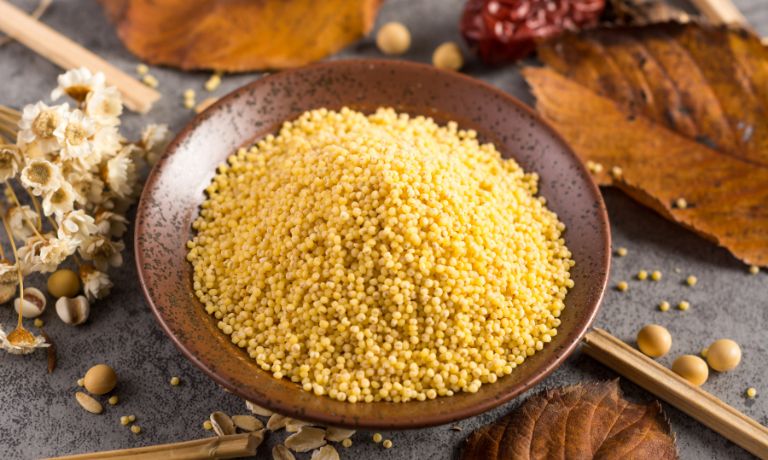
Nuts
Nuts are an excellent substitute for couscous.
They add flavor and crunch to any dish, while also supplying essential vitamins and minerals that promote good health.
Many types of nuts, including almonds, walnuts and pistachios, make a great alternative to couscous in salads and pasta dishes.
Try adding chopped nuts to your favorite salad or use them as a topping for savory dishes like risotto.
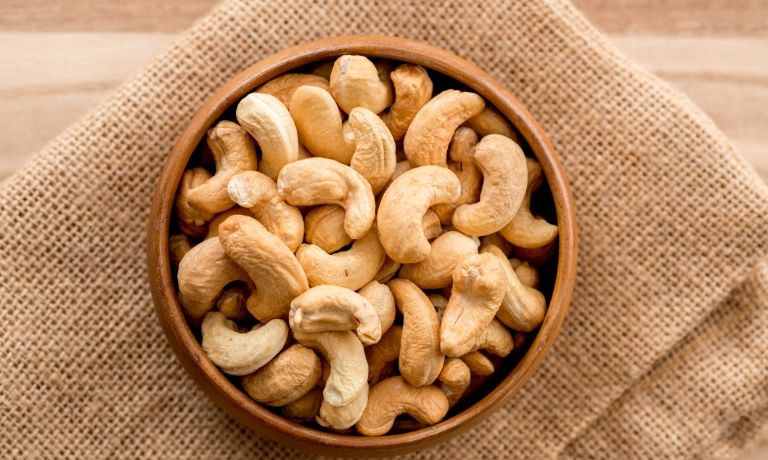
Cooked Lentils
Cooked lentils are an excellent substitute for couscous.
Lentils contain several essential vitamins and minerals, as well as dietary fiber and protein.
They’re also low in fat and cholesterol, making them a great choice for those looking to reduce their consumption of unhealthy fats.
Moreover, cooked lentils have a nutty flavor that pairs perfectly with other ingredients like vegetables, grains and even meats.
Try using cooked lentils instead of couscous in your favorite recipes for a nutritious twist on traditional dishes.
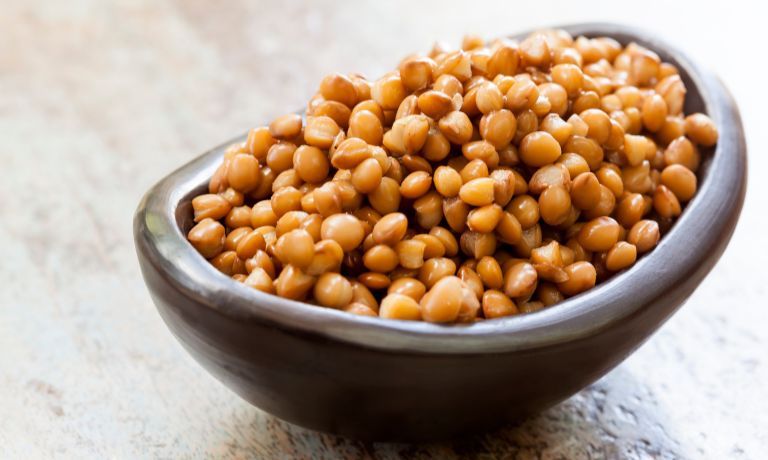
Fonio
Fonio is an ancient grain that has been used in African cuisine for centuries.
It is gluten-free, high in fiber and rich in essential vitamins and minerals like magnesium, calcium and iron.
Fonio is also a quick-cooking grain, which makes it a great substitute for couscous in salads or side dishes.
Try adding it to stir-fries, stews or soups for a delicious new twist on traditional recipes.
Fonio is an excellent choice for those looking to add more nutrition to their diet without sacrificing flavor or texture.
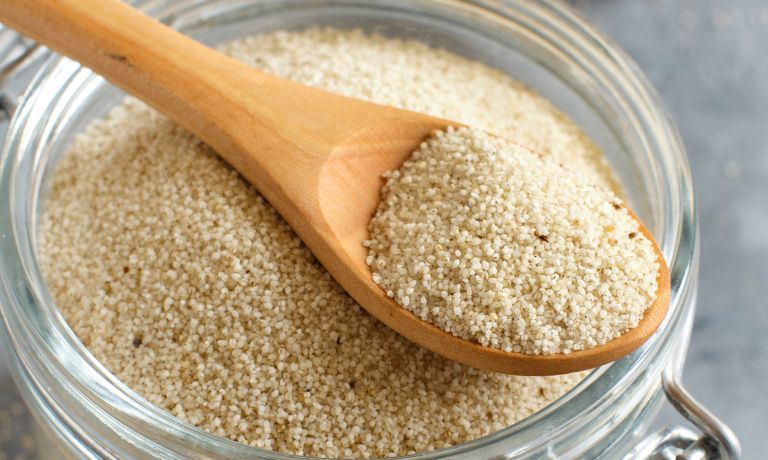
FAQs
How Do You Cook Substitutes for Couscous?
To cook grain rice, all you need to do is add the appropriate amount of water or stock and let it simmer until tender.
Riced cauliflower can be sautéed in oil until lightly browned or boiled in salted water for 10 minutes before being drained and served.
For millet, just boil the grains in boiling water until they are soft and fluffy – usually around 15 minutes.
Are There Any Other Considerations When Using an Alternative to Couscous?
Yes! If you’re substituting couscous for a recipe that traditionally uses other grains, you’ll need to adjust the amount of liquid and cooking time to ensure your dish turns out as intended.
Additionally, be sure to take into account any flavors or seasonings from the original recipe when choosing an alternative, as some ingredients can have drastically different results.
How Can You Make Your Substitutes for Couscous Taste Better?
Adding herbs and spices can help to enhance the flavor of almost any dish, including substitutes for couscous.
Consider adding garlic, cumin, cinnamon, paprika or other spices to give your meal an extra boost.
Additionally, you could try pan-frying the grains in some oil with onions or peppers before cooking them for added flavor.
Lastly, don’t forget that sauces and dressings can also be used to provide a delicious finishing touch!
Conclusion
After researching substitute grains for couscous, you have likely seen firsthand the great versatility of these grains.
From quinoa to Fonio, there are plenty of alternatives that provide fantastic texture and flavor for your dishes.
Whether you’re looking to add variety or trying to accommodate special dietary needs, rest easy knowing this guide has your back.
With these delicious substitutions, you can enjoy all the flavors of couscous without compromising on health.
With so many great options available, it’s easy to find the perfect substitute for couscous!

